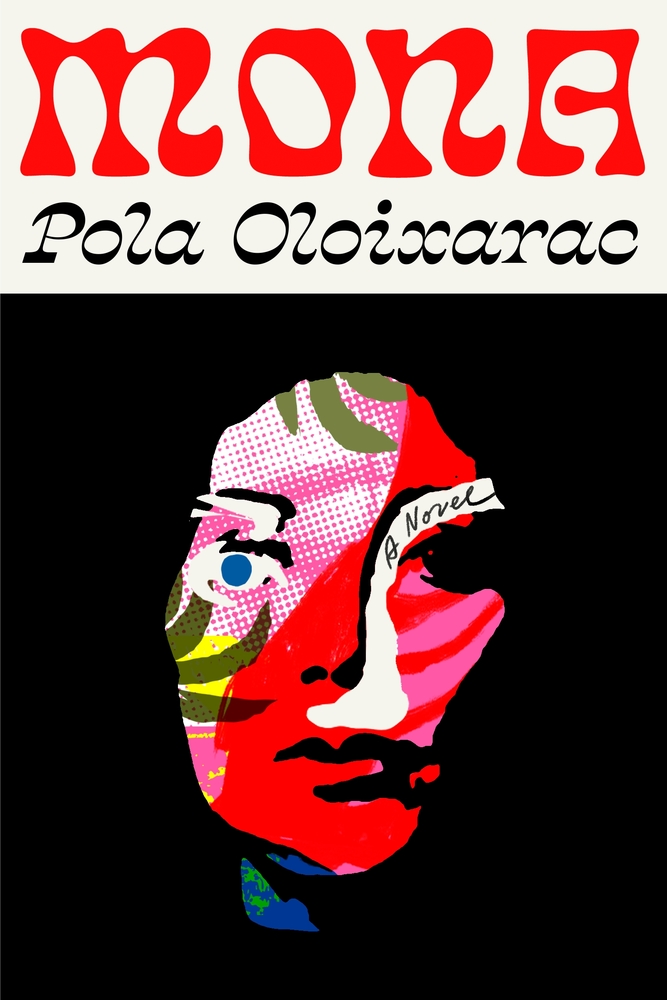Authors Behaving Badly
Reviews
By Wilson McBee
Mona, the Peruvian writer and eponymous protagonist of Pola Oloixarac’s new novel, leads a life that, if it were summarized in a LinkedIn bio, would be worthy of considerable envy. Her first novel garnered international acclaim as a “radical phenomenon” and was praised as a worthy successor to masterpieces produced during the Latin American Boom. After completing her master’s at Princeton, she’s landed in the PhD program at Stanford. And she’s just been nominated for the Basske-Wortz Prize, “the most important literary award in Europe and one of the most prestigious in the world.”
But Mona’s life is not as satisfying as it may seem. She has bruises from injuries she can’t remember. She’s become a little too reliant upon her cannabis vaporizer and a regimen of pharmaceutical sedatives to get through the day. A lover sends a steady stream of vaguely menacing text messages, such as “When I close my eyes, I see you. With me.” and “There’s no one else like you. Why are you hiding?” Her second novel has just been rejected by her French publisher.
And that prestigious award? It could be more trouble than it’s worth, considering that, as a nominee, Mona is required to fly to Sweden and attend a writer’s conference in a remote resort before even finding out if she’s won. As charming as the trip appears, she’s simply not in a state to engage in theoretical debates with rivals and former lovers or exchange pleasantries with well-meaning plutocrats. What should be a junket threatens to be an agonizing ordeal.
Oloixarac’s first novel, Savage Theories, elaborated a maximalist caper starring Argentine guerillas, a Dutch anthropologist, and a couple of Rousseau-quoting polyamorists. Her second, Dark Constellations, was a tripartite sci-fi adventure set in 1882, the 1980s, and 2024. Compared with its predecessors, then, Mona presents as significantly less ambitious, given that it takes place largely in a single setting and is told from a single point of view. One hesitates to introduce the term autofiction, lest he be forced to contend with the genre’s fraught contemporary reputation. Still, the autobiographical references are hard to overlook. Both Mona and her creator produced highly successful debut novels. Both are of Latin American extraction. And both have an institutional affiliation with Stanford. But, as far as most readers are concerned, the obvious resemblances necessarily end there; we simply don’t know enough to be sure. It seems more likely that Oloixarac has used the broad outlines of her own life to broach the true subject of the novel, which is not herself, or Mona, but the international literary scene.
Anyone who’s ever attended a literary conference (or any kind of professional gathering for that matter) will recognize the atmosphere of bratty one-upmanship, unrestrained horniness, and alcohol-fueled debauchery prevailing at what is known as the Meeting, the annual conference sponsored by the Basske-Wortz Prize committee. Some of Mona’s best moments come in Oloixarac’s depictions of the authorial elite in their natural habitat. The back-and-forths toggle between grandiose philosophizing, preening personal confessions, and smug name-dropping. Marco, a swaggering Colombian in cowboy boots and a pirate’s hat, opens a lecture with this cloying morsel of poststructuralist gobbledygook: “First of all, we have to accept that our readers are no longer human. That we’re all immersed in an immense narrative, the largest representational endeavor in the history of the world: Google.” Another attendee, the perpetually nude Swede Akto, recites Bob Dylan’s “Blowing the Wind”—in Latin.
Nevertheless, Mona, struggling as she is with her own problems, serves as an able intercessor for these mostly ridiculous, and sometimes pitiable, windbags. The book presents two visions, not exactly conflicting, of the act of writing—a bullshit parade for narcissistic peacocks, and the last noble pursuit in a dying world. Mona, with her unceasing self-flagellation and determination to write something good, embodies these two perspectives. Writing offers a retreat from the world as well as a new way of engaging with it: “It was how she started writing: she burrowed down into a hole inside herself until she could look back up at the world with a sense of fascination. Her technique was based on the idea that, with the right equalization, anything could be turned into music or else completely negated.”
As readers of this review can probably tell by this point, enjoyment of Mona will likely hinge on how interested you are in issues of literary ethics, internationalism, and academic politics—or how much you appreciate digs at current fetishes like Karl Ove Knausgaard and Thomas Bernhard. Thus Mona could be dinged for dealing too heavily in inside baseball. Even if it is often funny and occasionally profound, it lacks the dazzle of Oloixarac’s earlier novels. The book’s final third could have been written to preempt this criticism, given how rife it is with incidents. A long passage detailing a traumatic experience from Mona’s past helps to explain her anxiety (remember those bruises?), but our understanding is limited by a lack of context. The final scene—the expected awarding of the coveted prize—devolves into a biblical spectacle that resists description or summary. Landing awkwardly in the space between a playful send-up of the literary world and a remorseless critique, Mona, like its protagonist, doesn’t know exactly want it wants to be.
Wilson McBee is a staff writer for SwR.
More Reviews

